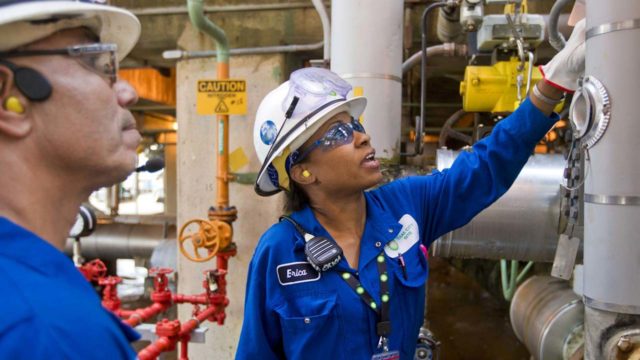Discover how petroleum engineering shapes global politics and economies. Unravel the energy-geopolitics connection with real-world examples and expert insights.
Petroleum isn’t just about fueling cars or running industries—it’s about power, control, and global influence. From oil-rich nations flexing their economic muscles to energy-dependent countries navigating tricky diplomatic waters, the relationship between petroleum engineering and geopolitics is a high-stakes chess game. But how do these pieces fit together? Let’s break it down.
Energy, Politics, and Economy: An Unbreakable Bond
Think about it—every modern economy relies on energy. But when that energy comes primarily from oil, things get complicated. Countries rich in petroleum resources often hold immense political power. This influences trade policies, military strategies, and even international conflicts. On the flip side, nations lacking energy resources must rely on diplomatic ties, trade agreements, or alternative energy solutions to keep their economies running.
Who controls the oil, controls the world?
Ever heard the phrase “oil is thicker than blood”? It’s true in international relations. Take the Organization of the Petroleum Exporting Countries (OPEC)—a coalition of oil-rich nations that influences global oil prices. When OPEC decides to cut production, oil prices surge, affecting everything from transportation costs to inflation rates worldwide. In contrast, when oil is abundant, prices drop, benefiting consumers but harming oil-dependent economies.
The Role of Petroleum Engineers in Global Politics
You might be wondering—what do petroleum engineers have to do with geopolitics? A lot, actually. These professionals are at the heart of oil exploration, extraction, and production. Their innovations determine how efficiently and sustainably we extract fossil fuels, which in turn affects global supply chains and market stability.

Tech Innovations Shaping Political Agendas
New extraction technologies like hydraulic fracturing (fracking) and deep-water drilling have changed the energy landscape. Take the U.S. shale revolution—advances in fracking allowed the U.S. to reduce its dependence on Middle Eastern oil, reshaping global energy politics. This shift gave America more leverage in international negotiations and reduced OPEC’s influence over oil prices.
But with great power comes great responsibility. Sustainable extraction methods are now a priority, especially as environmental concerns grow. Nations investing in clean energy technologies are gradually reducing oil dependence, shifting the geopolitical balance once again.
Case Studies: When Energy Meets Politics
Real-world examples make the connection between petroleum engineering and geopolitics even clearer. Let’s explore some of the biggest energy-related power plays in recent history.
Case Study #1: Russia & Europe’s Gas Dependence
Russia supplies a significant portion of Europe’s natural gas. This dependency became a major issue when geopolitical tensions arose—especially during the Russia-Ukraine conflict. When Russia threatened to cut off gas supplies, European nations scrambled to find alternatives. This crisis highlighted the risks of relying on a single energy supplier and pushed Europe to accelerate its transition to renewable energy sources.
Case Study #2: The Gulf Wars & Oil Politics
Would the Gulf Wars have happened without oil interests? Probably not. The 1991 Gulf War was heavily influenced by Iraq’s invasion of Kuwait, a major oil-producing nation. The world’s response wasn’t just about protecting Kuwait’s sovereignty—it was also about ensuring stable oil supplies. Fast forward to the Iraq War in 2003, and oil was once again a central theme. Energy security and economic interests often shape military strategies, whether openly acknowledged or not.
Case Study #3: Venezuela’s Oil Crisis
Venezuela sits on some of the largest oil reserves in the world, yet its economy is in shambles. Why? Years of mismanagement, corruption, and overdependence on oil revenues. When oil prices plummeted in the mid-2010s, Venezuela’s economy collapsed, leading to political unrest and mass migration. This serves as a harsh lesson on the dangers of an oil-dependent economy without proper diversification.
The Future: Is Oil Still King?
With climate change concerns and the push for renewable energy, one big question looms—does petroleum still hold the same geopolitical weight? The short answer is yes, but not forever.
The Renewable Energy Challenge
Countries are now investing heavily in solar, wind, and nuclear energy. The rise of electric vehicles (EVs) and battery technology is reducing oil demand in some sectors. However, oil isn’t going away anytime soon. Many industries, from aviation to heavy manufacturing, still rely on petroleum-based products.

Geopolitical Shifts: Who Will Lead the Energy Race?
As nations transition to cleaner energy, new geopolitical alliances are forming. The race for lithium and rare earth minerals, essential for batteries and renewable technologies, is already heating up. China currently dominates this market, setting the stage for new power struggles in the energy sector. Will we see a shift from “petropolitics” to “battery politics”? Only time will tell.
Final Thoughts: Why This Matters Petroleum engineering and geopolitics
Petroleum engineering and geopolitics are deeply intertwined. From wars to economic booms, from technological breakthroughs to environmental debates—oil has shaped our world in more ways than we can count. But as we move towards a cleaner, more sustainable future, how will this dynamic change?
For now, petroleum remains a powerful geopolitical tool. But those who innovate, adapt, and invest in sustainable solutions will shape the future of energy politics. Whether you’re an engineer, a policymaker, or just someone filling up your gas tank, understanding this complex relationship helps us navigate a world driven by energy, petroleum engineering, and geopolitics. Read more>>>
What’s Your Take?
Do you think oil will remain the dominant global energy source, or will renewables take over? Drop your thoughts in the comments below! And if you found this article insightful, share it with your network to keep the conversation going.



